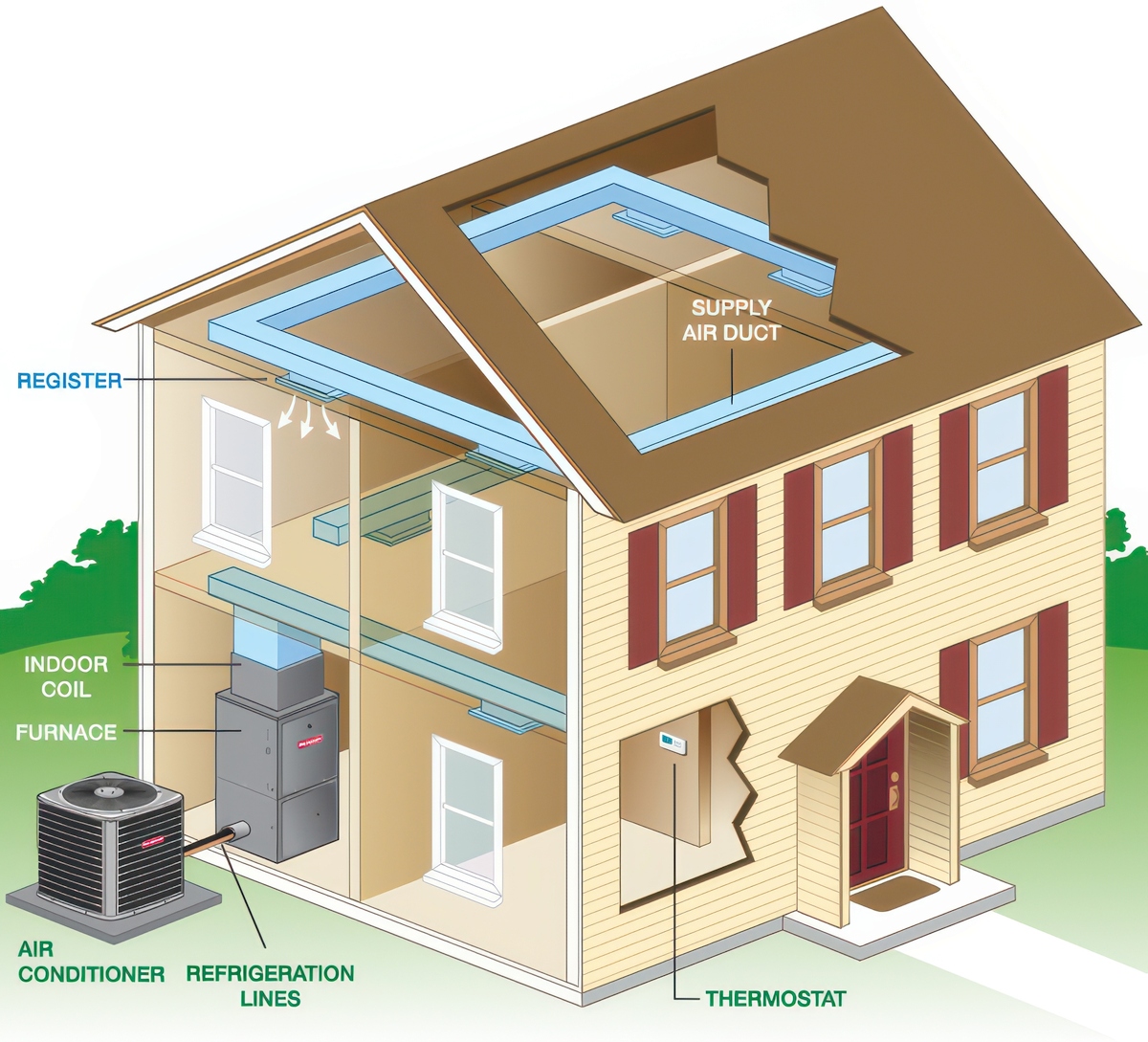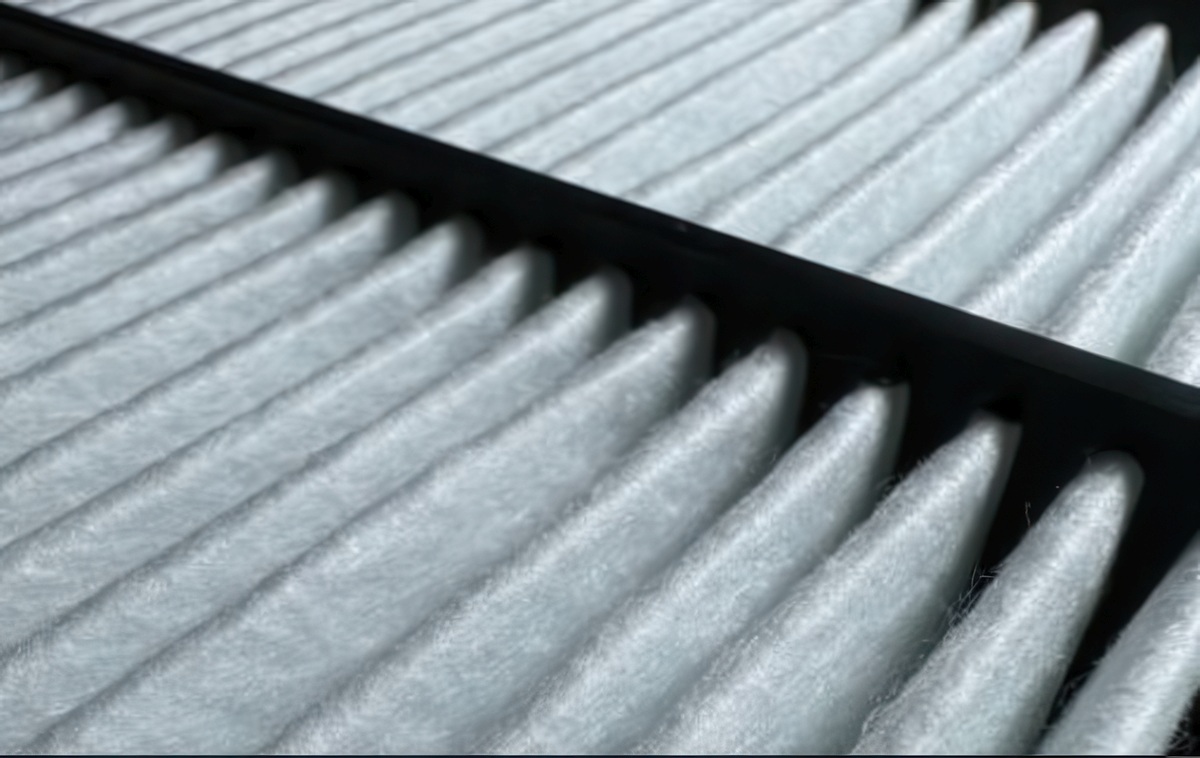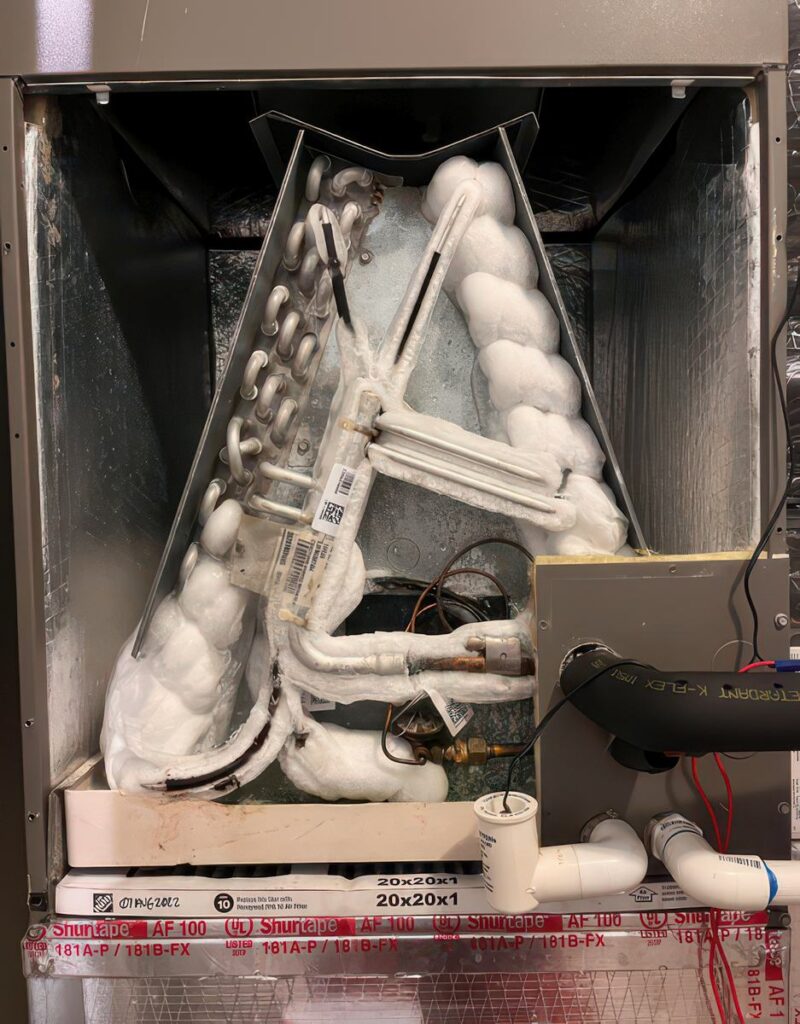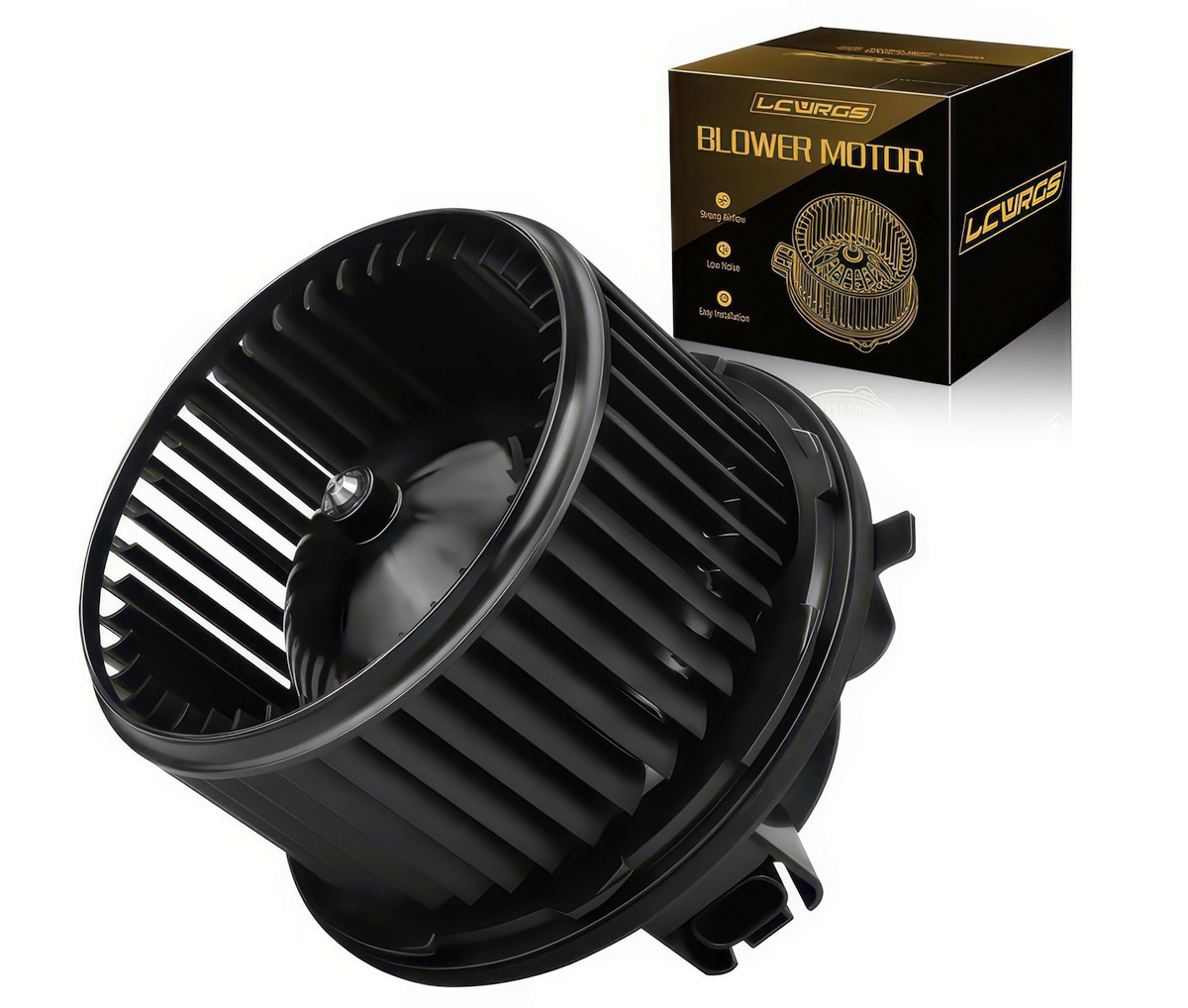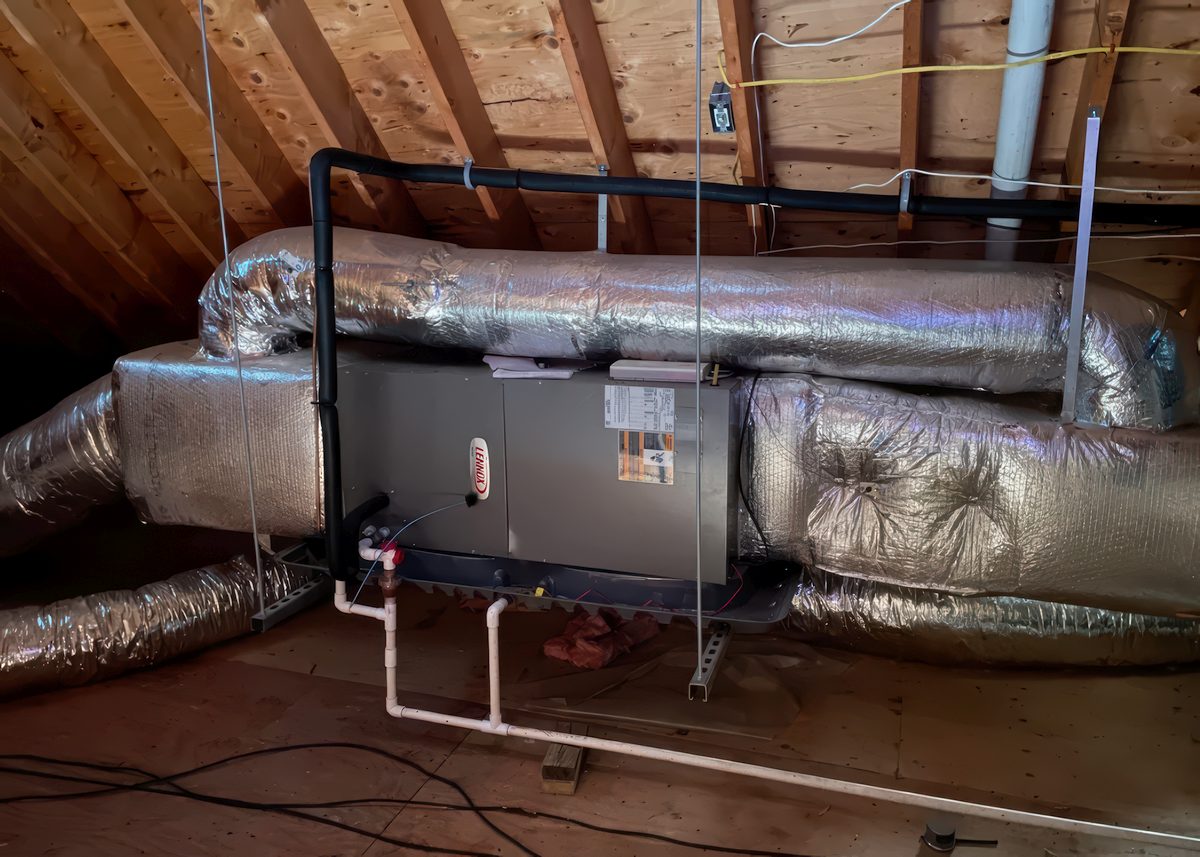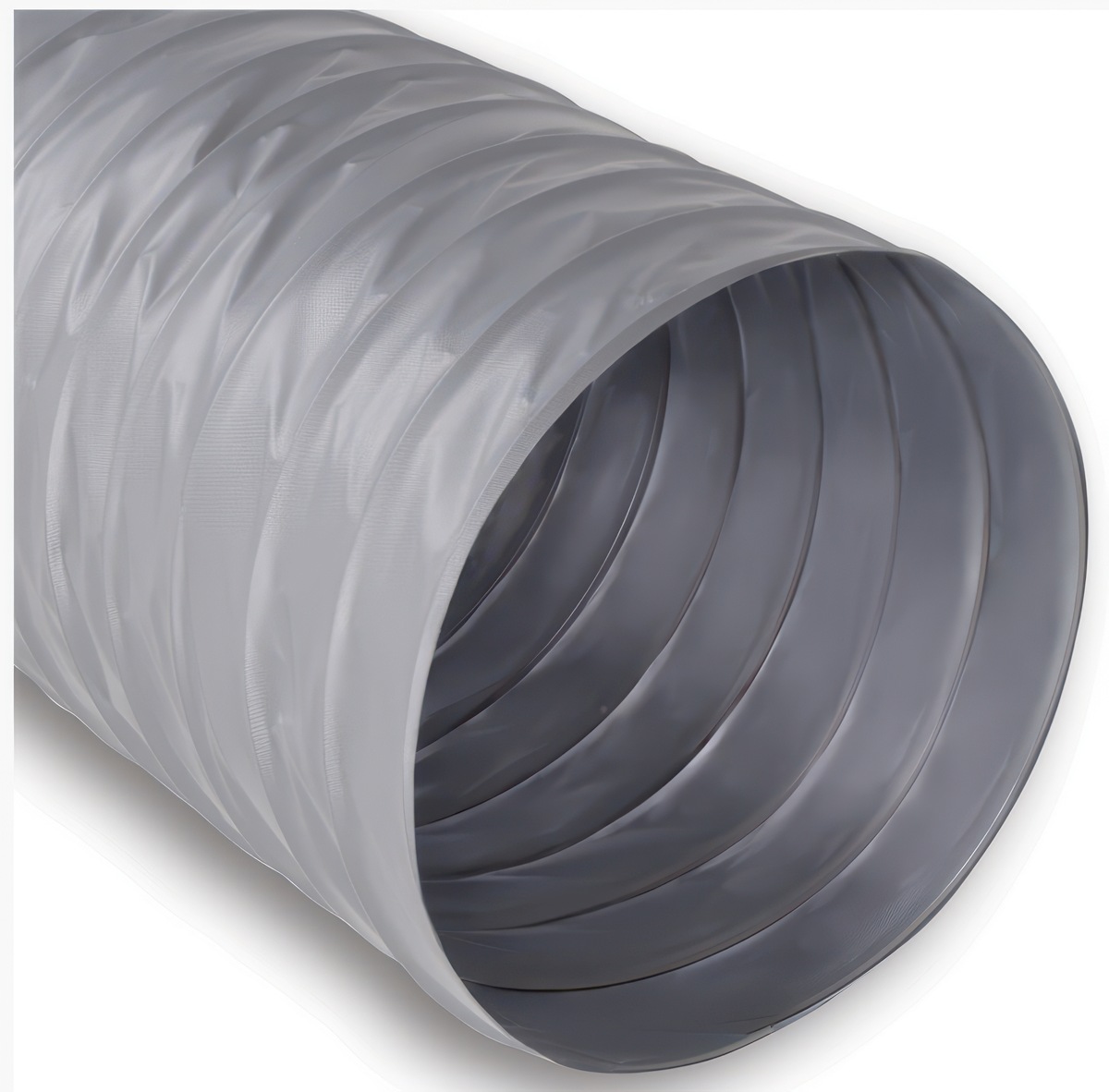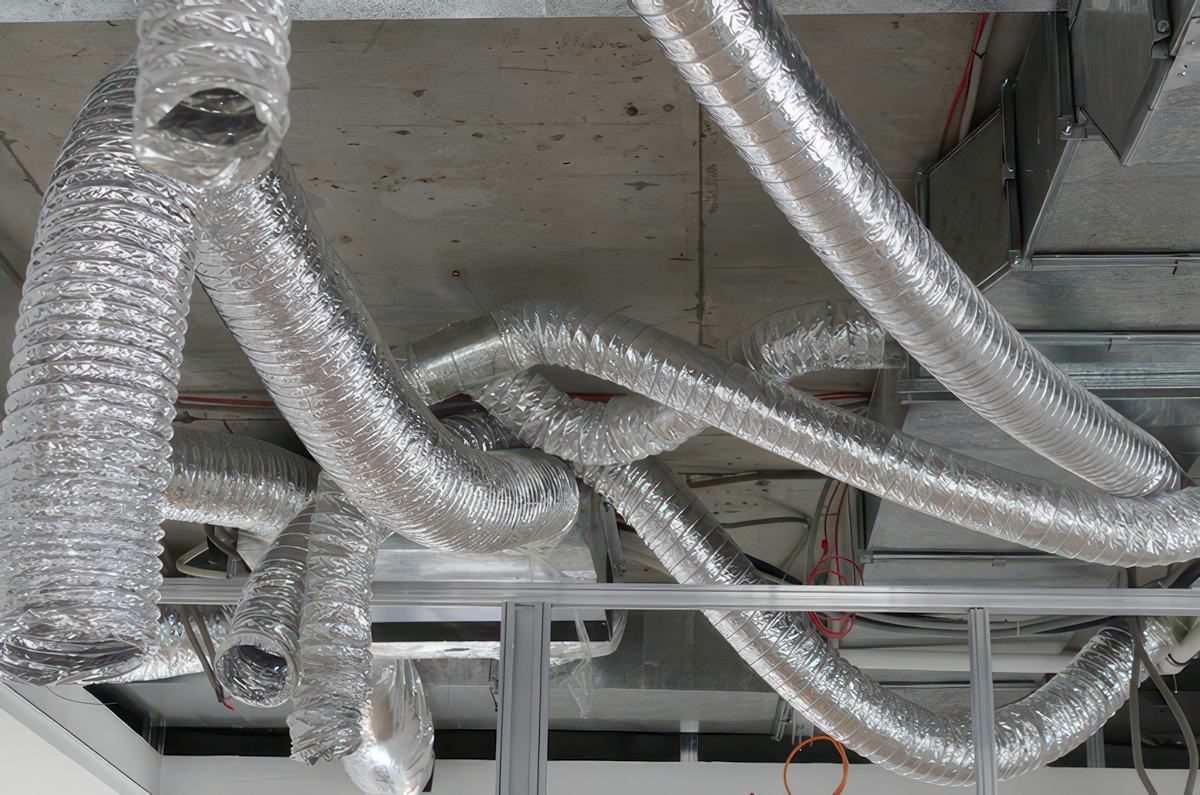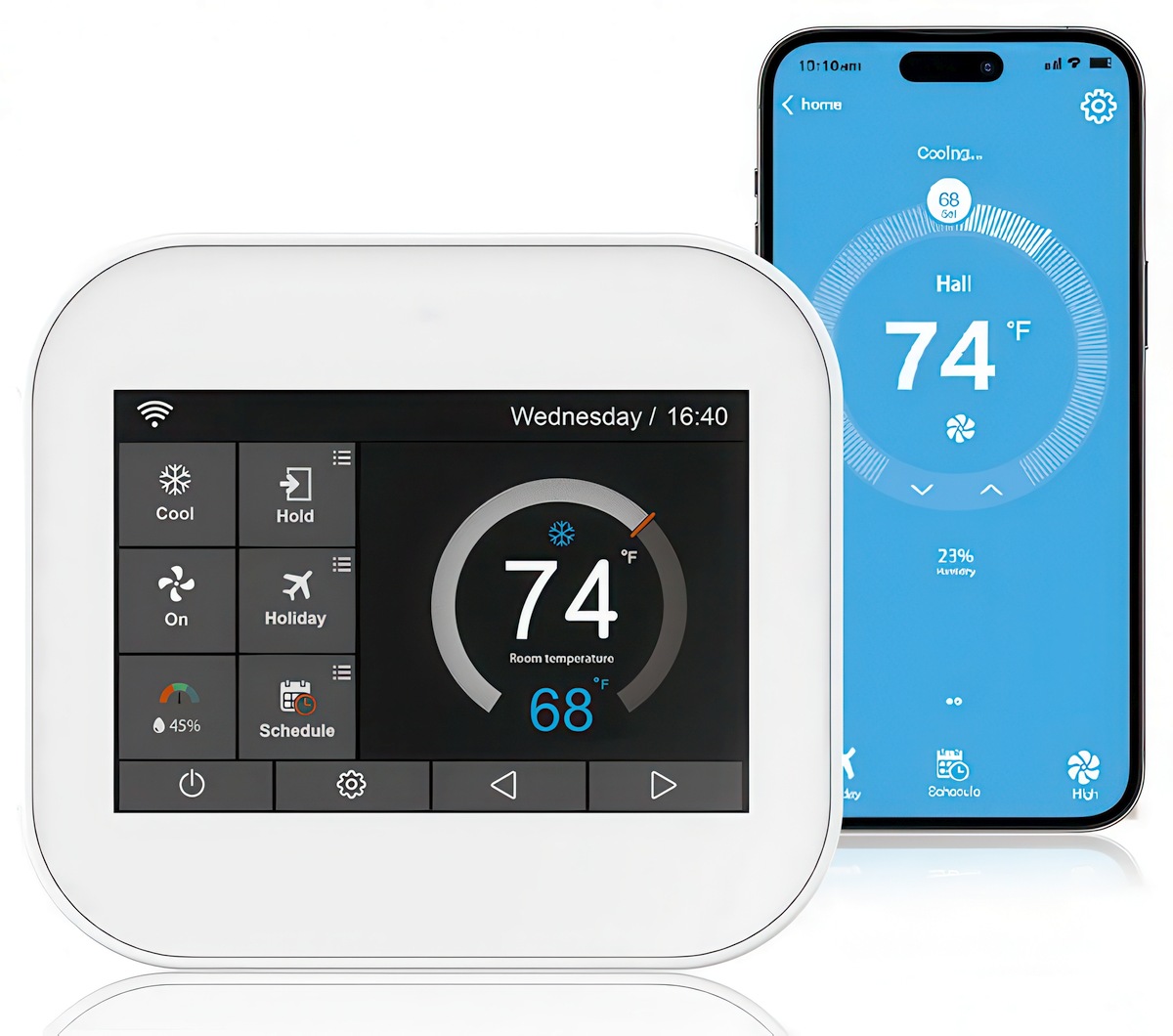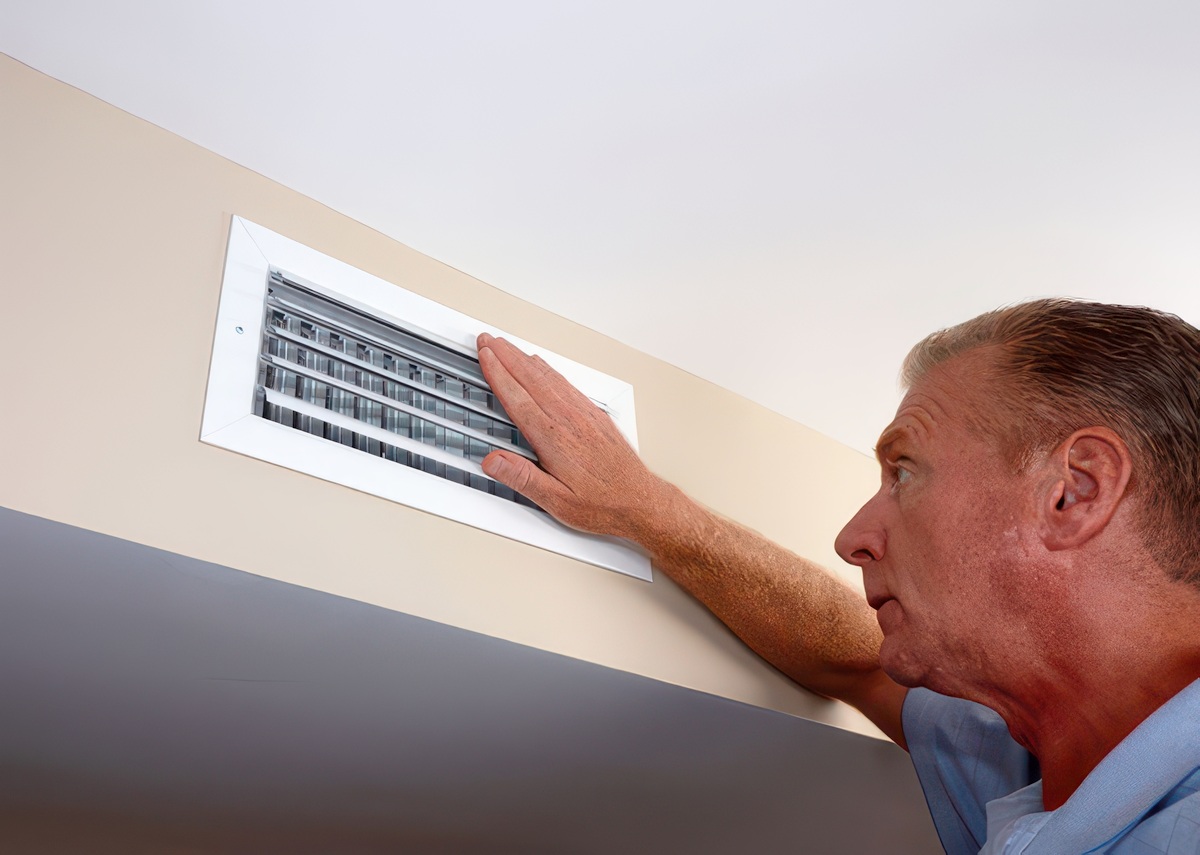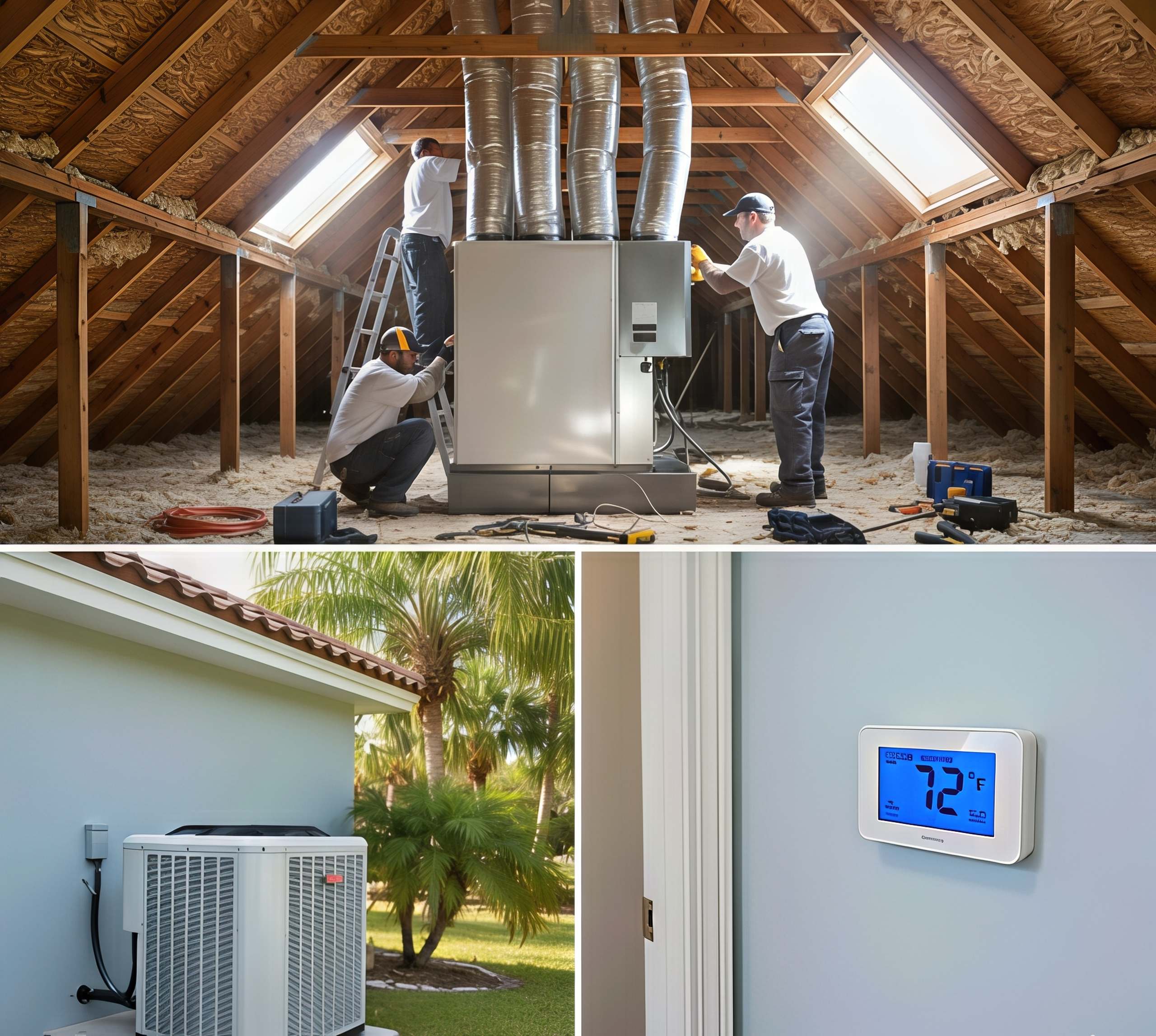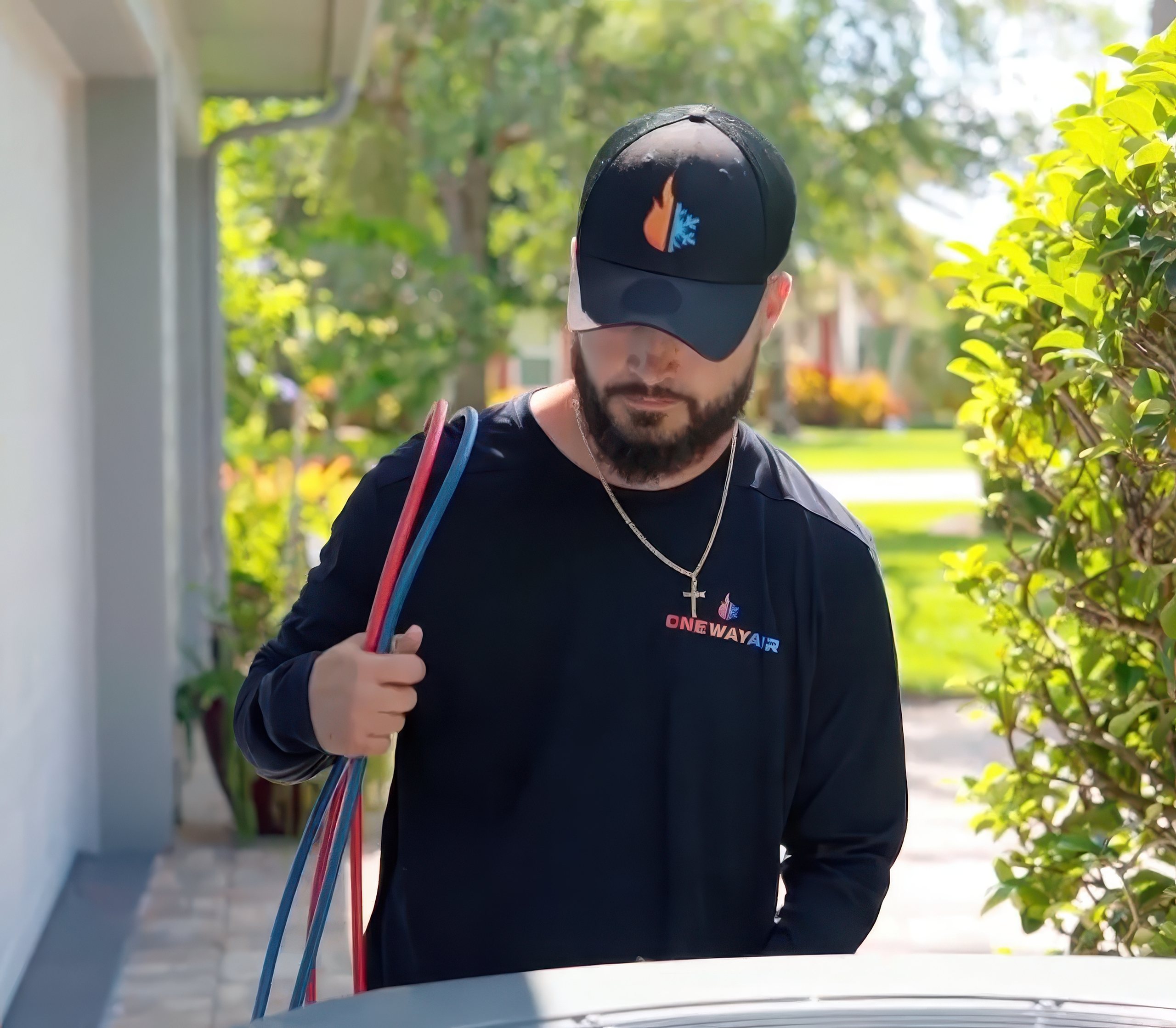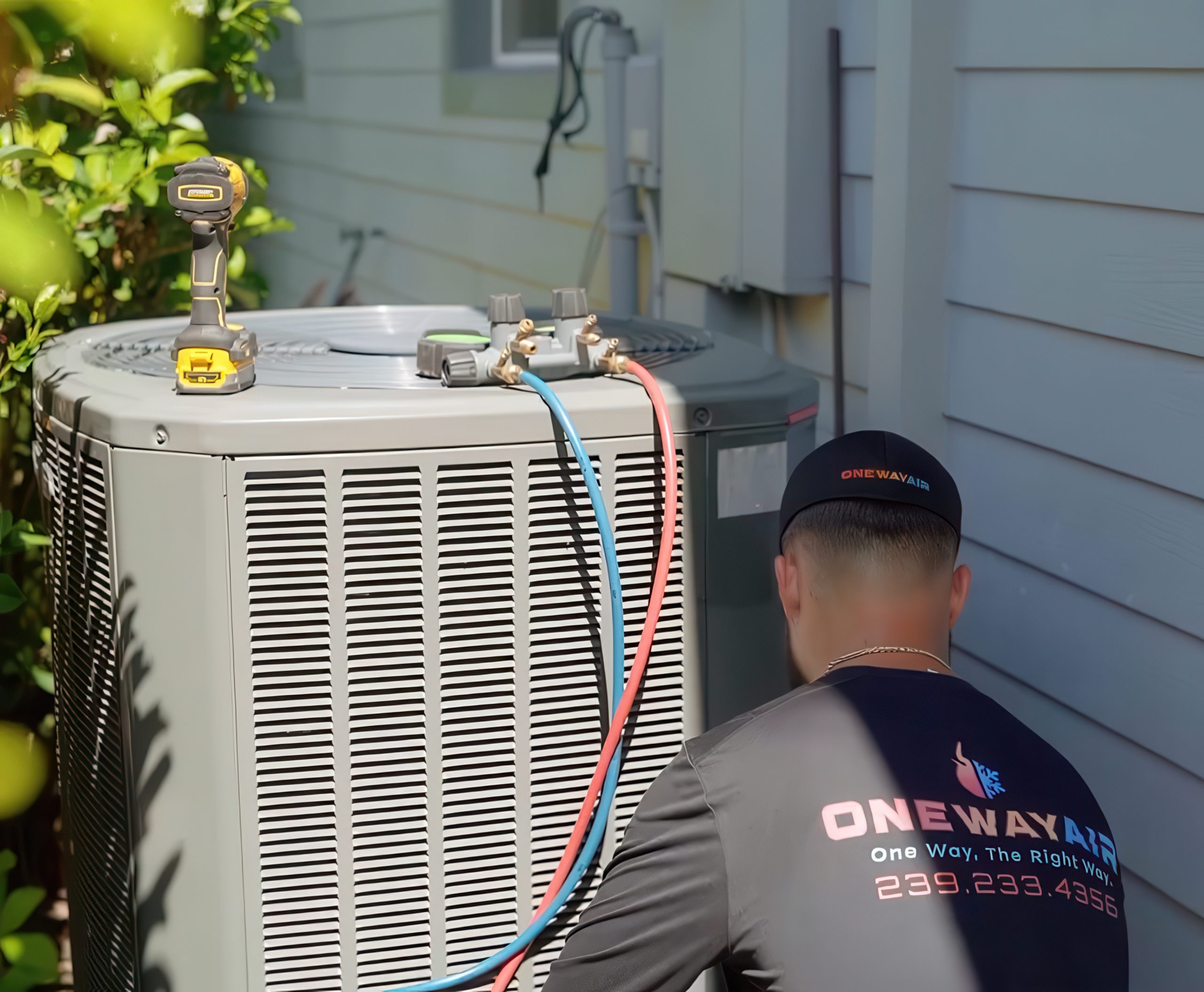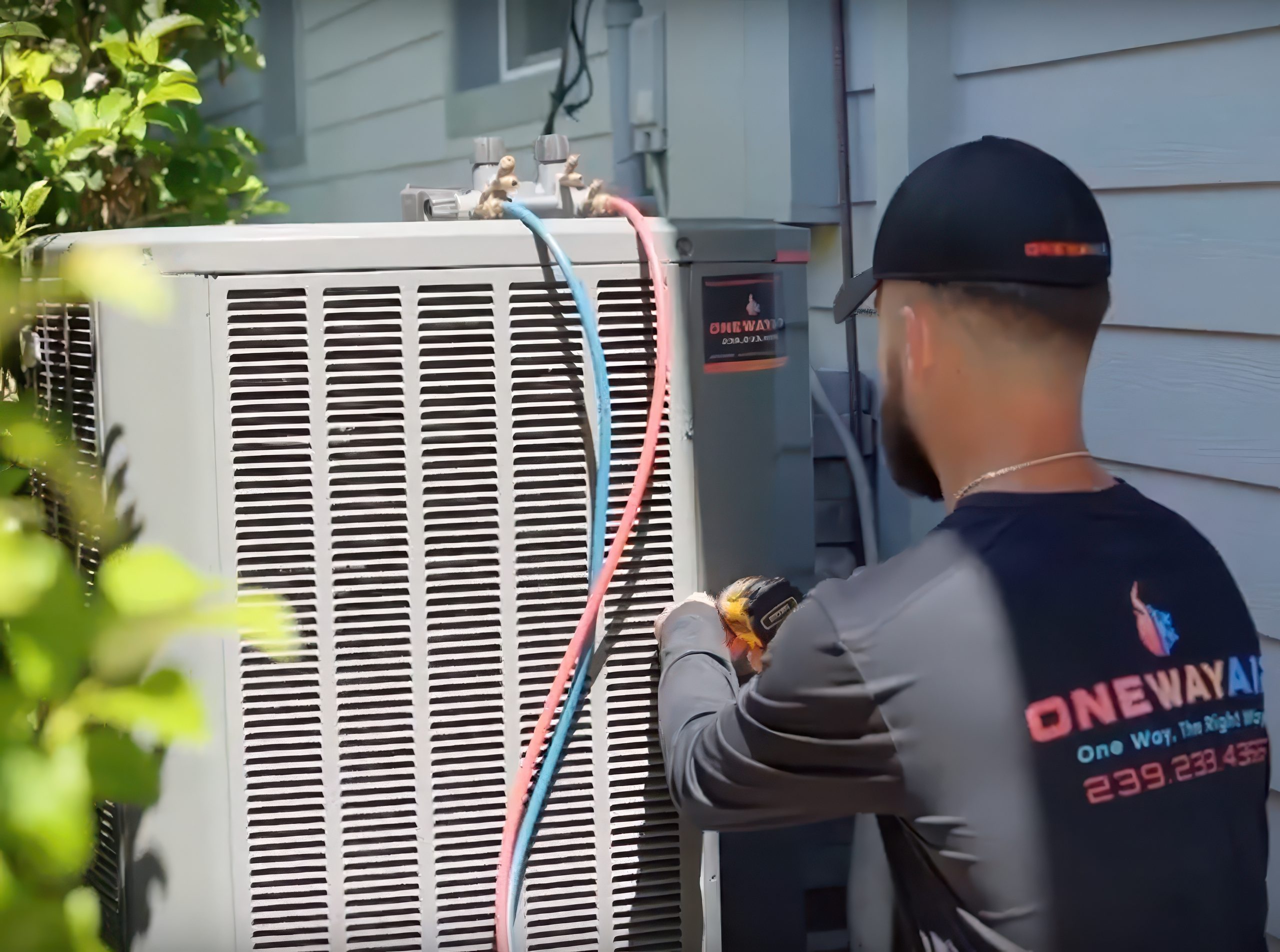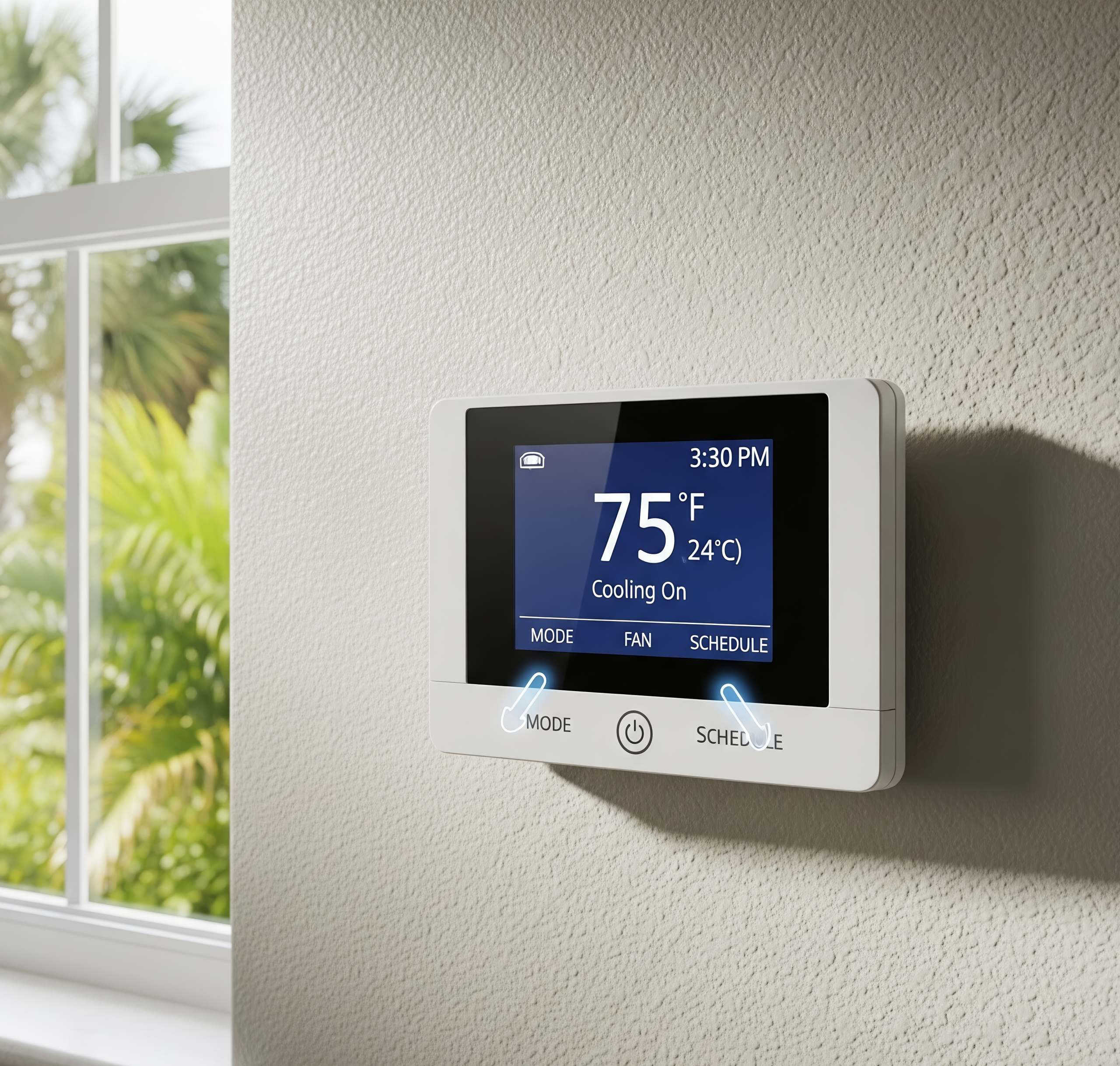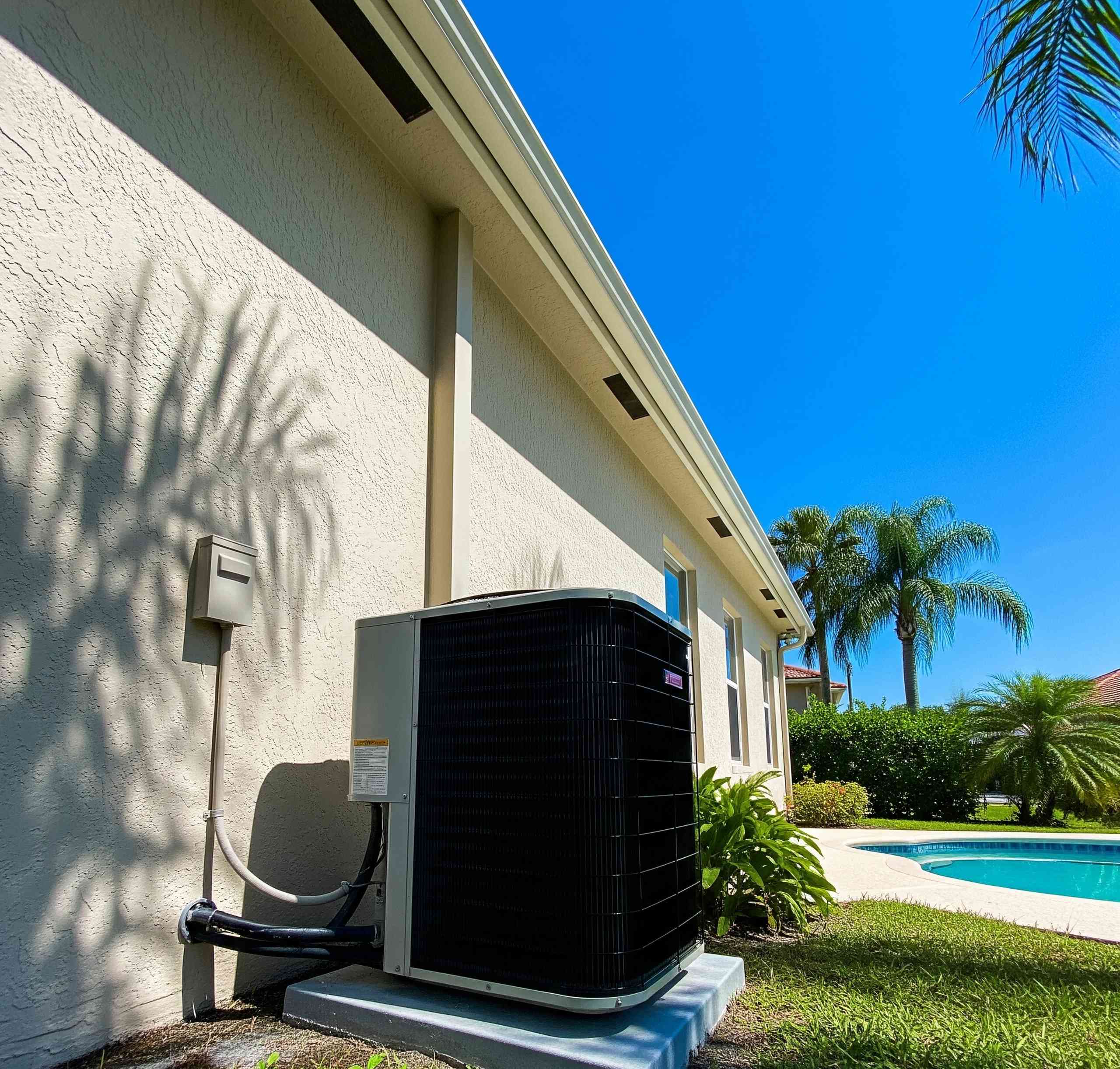Weak airflow from your central air conditioning? Not enough cool air reaching all parts of the home like normal? Just one air vent affected or all of them?
If your AC unit is not blowing hard enough, something’s wrong—but, fortunately, most such problems have relatively simple answers and fixes.
Let’s take a deeper look at this issue, with troubleshooting of the problem and professional suggestions for fixes…
WHY IS MY AC UNIT NOT BLOWING HARD?
If your central AC has weak airflow, it could be down to a dirty air filter, leaky or blocked air ducts, a frozen evaporator coil or a blower motor problem.
The exact nature of the restricted airflow—specifically, how weak it is, whether it happened gradually or suddenly, and whether all vents are affected or just one—can tell you a lot about what might be to blame.
While some problems like frozen AC coils can be alarming, your AC system is probably not about to pack up completely. Most issues can be resolved relatively easily with some simple air conditioning maintenance or AC repairs.
STAY COOL ALL YEAR ROUND WITH ONE WAY AIR…
The team at One Way Air installs, services, and repairs all types of air conditioning systems in Southwest Florida. Get in touch with us here for a quote or call 239-233-4356 in emergencies.
WEAK AC AIRFLOW FROM ALL VENTS: DEEP DIVE
Weak airflow is not normal for central AC systems in Florida but it can sometimes happen—either from one return vent only or all vents.
If the AC is not blowing hard enough through all vents, it is likely due to one of the following issues:
Dirty air filter
This is probably the most common reason for weak airflow from air conditioning—and the simplest to fix. Dirty air filters obstruct airflow and cause a variety of problems in all types of AC units.
AC filters remove unwanted particles from the air, maintaining good indoor air quality. AC air filters need cleaning or replacing every one or two months depending on conditions in the home and the type of filters used.
If an air filter is not cleaned or replaced when blocked, it can restrict airflow, limiting the amount of cool air blowing through the ductwork and out through the vents. Your AC will work less efficiently and unless the problem is fixed, more serious problems could result, such as frozen AC coils.
Recommended Fix:
Clean or change the air filter for a new one—if in doubt about how to do that, read this or contact a professional HVAC technician.
AC coils frozen
The evaporator coil is responsible for absorbing heat and moisture from the air inside your home, using refrigerant to cool the air as it passes over the coil during the cooling cycle.
If the AC coil is frozen, this can be an alarming sight but there may be a simple reason. Most times, it’s due to restricted airflow from a dirty air filter, blocked vents, a malfunctioning blower, a buildup of dirt on the evaporator coil or a refrigerant leak. As the coil ices up, it further reduces airflow and so your AC will not blow cool air out so forcefully into the home.
The frozen AC won’t fix itself but a little intervention from a homeowner or a professional should be able to get the air flowing again and fix the problem.
Recommended Fix:
You’ll need to turn off the AC and thaw the ice by temporarily turning the thermostat fan setting to ON. Collect the thawed water underneath the air handler. If changing the air filter doesn’t work and your unit freezes up again, call a professional to check the AC refrigerant levels, water flow through the system, and the blower motor.
A dirty or faulty blower
The blower, also located within the air handler, is responsible for blowing the air over the evaporator coils and forcing cool air along the ductwork and out through the vents of your home.
If the blower wheel becomes too dirty or faults develop with the motor, it will not perform properly and the volume of cool air circulated through the home can dramatically reduce—hence the feeling that the AC unit is not blowing hard enough.
Recommended Fix:
You may be able to carefully remove dust and debris from the blower wheel with a toothbrush but don’t attempt to fix a blower motor yourself. Call a professional to inspect the system and implement the necessary fix.
Leaky or blocked ductwork
AC ductwork delivers cool air from the central air conditioning system to all rooms in your home.
If a fault develops in the ducting, such as a leak, disconnect or blockage, this will impact the volume of cool air and the force with which it blows from the AC. The problem can affect all return vents or just one or two.
The loss of airflow due to problems with ductwork is usually very gradual. If you notice a sudden drop in the force of cool air, another reason is the likely cause—unless you had ductwork done recently and there is a problem with it.
Recommended Fix:
Ductwork issues can be difficult for homeowners to pinpoint.
First, make sure that all vents and registers in your home are open and unobstructed by furniture, curtains, plants or boxes. Nothing should be impeding the airflow or causing the AC to blow with a lighter force than normal. If the problem persists, order a duct inspection from AC professionals, who can troubleshoot blockages and leaks and fix issues with the right equipment.
WEAK AC AIRFLOW FROM ONE VENT ONLY: DEEP DIVE
If your AC is not blowing hard through one air vent only, you can rule out a few of the issues outlined above.
A dirty air filter, damaged blower motor or frozen evaporator coil usually causes general airflow problems. If only one vent is affected, it’s more likely to be a localized ductwork issue. Home construction or technical work near the ducting can damage or obstruct it.
Here are several possible causes of weak airflow from one air vent…
Crushed flex ducts
Flex ducts are very flexible wire tubes covered in plastic. This popular type of ducting is a common sight in Florida homes because it’s flexible, lightweight, effective, and affordable.
The main negative of flex ducting is that the ducts can easily be crushed or damaged. This can restrict airflow and cause the AC to blow lighter in one area of your home.
Recommended Fix:
Get an HVAC technician to inspect the ductwork, troubleshoot the issue, and repair or replace the crushed flex duct.
Disconnected or leaky air duct
Whether your home has flex ducts or metal sheet ductwork, it can become disconnected or develop leaks over time. This can lead to a significant loss of cool air from the AC system and result in weak airflow in some areas of the home.
Recommended Fix:
Get an HVAC technician to inspect the ductwork, troubleshoot the issue, and repair or replace the disconnected or damaged ductwork.
Closed valve in the ductwork
A set of damper valves in ductwork systems block or restrict airflow to particular rooms. These may be controlled by the central thermostat or zoning system. If a valve is closed, the affected room or particular vent will experience a lack of airflow.
Recommended Fix:
If the valve is open and you cannot re-open it using the main controls, get an HVAC technician to troubleshoot the issue. This should fix the weak airflow problem.
HOW STRONG SHOULD AIRFLOW BE FROM CENTRAL AC?
Most homeowners notice their central AC unit not blowing hard when the airflow suddenly weakens or drops dramatically in a short space of time. It can be much harder to detect problems if the airflow reduces gradually over time, as is sometimes the case.
If you’ve just moved in or sense that something’s wrong with your AC but cannot pinpoint the issue, how do you know how strong the airflow should be?
There’s no simple right or wrong answer. The proper airflow rate depends largely on the type and size of the unit.
The airflow rate is measured in cubic feet per minute (CFM). Each manufacturer has a standard for their units but, as a general guideline, most small rooms require an air movement of 50 CFM. Larger rooms may require a higher CFM.
The overall CFM rate of a unit depends on its tonnage: around 400 CFM per ton. So, a two-ton central air conditioning system needs about 800 CFM of airflow, and a 2.5-ton system needs about 1,000 CFM.
Most Florida homeowners don’t have the right equipment to measure airflow rates and call a licensed AC professional instead.
QUICK TIPS FOR IMPROVING AC AIRFLOW STRENGTH
To maintain strong enough airflow from your central air conditioning, pay attention to the following:
- Clean or replace the air filter regularly (every 4-8 weeks)
- Inspect the blower and keep the blades free of dust
- Check the evaporator coil periodically to make sure your AC unit is not frozen
- Check that nothing obvious is obstructing airflow from vents and registers in your home
- Clean vents and registers from time to time
- If you have flex ducts, make sure that none of them are crushed
- Check thermostat settings and ensure that all relevant damper valves remain open
Most importantly, organize a comprehensive inspection and AC tune-up at least once a year—preferably twice—to keep your AC system in tip-top condition.

FAQs
You can increase airflow by replacing dirty air filters, removing obstructions, ensuring vents and their valves are open or enlarging the return vents. Reduce airflow to a room by closing damper valves. To maintain the most comfortable airflow for your home, consult with a licensed HVAC technician.
If your AC is frozen, you may observe weak airflow, frost on the refrigerant lines, excessive condensation, reduced heating, hissing or boiling sounds or higher electricity bills. Call a licensed HVAC professional if you notice any of these signs.
It’s best not to run your AC without an air filter overnight but if you inadvertently run your AC with no filter in place for several hours, it shouldn’t cause any lasting damage to your AC system.
No, a reduced AC airflow rate is unlikely to lower your monthly bills. In fact, if the reduced airflow is due to an underlying malfunction or efficiency issue, it could increase your bills.
AC TUNE-UPS AND REPAIRS IN SWFL
Don’t ignore it if your central AC is not blowing hard enough. It may be a common issue with a simple fix but, alternatively, it could point to underlying problems. Air conditioning units come at a high cost in Florida and it pays to protect your investment.
If you’re in SWFL and have any issues with your cooling system, contact One Way Air to arrange a full inspection and a tune-up or repairs to prolong the life of your AC.

